read also
Analytics / Research / Ratings / Reviews / USA / United Kingdom / Japan / France / Canada / Switzerland / China / Germany / Spain / Finland / Russia / Italy / Netherlands / Israel 17.10.2025
World’s Best Universities 2025: CWUR Ranking

Photo: Harvard
The Center for World University Rankings (CWUR) released its global list of universities for 2025, analyzing 21,462 institutions worldwide. The ranking is based on objective criteria ranging from education quality and alumni employment to faculty achievements and research output. With its scale and independent methodology, CWUR remains one of the most comprehensive tools for assessing universities’ global competitiveness.
The United States continues to dominate the top ten. Harvard remains the overall leader, ranking first across all key metrics—education, alumni employment, faculty, and research. It is followed by MIT and Stanford, which strengthened their positions in research productivity. The top ten also include Princeton, the University of Pennsylvania, Columbia, Yale, and the University of Chicago. Some contrasts are notable: MIT ranks among the global top three overall but only 11th for faculty, while Chicago closes the top ten with strong research results but weaker employment indicators. In total, 319 American universities made it into the top 2000, with all Ivy League institutions placed within the first 75 positions.
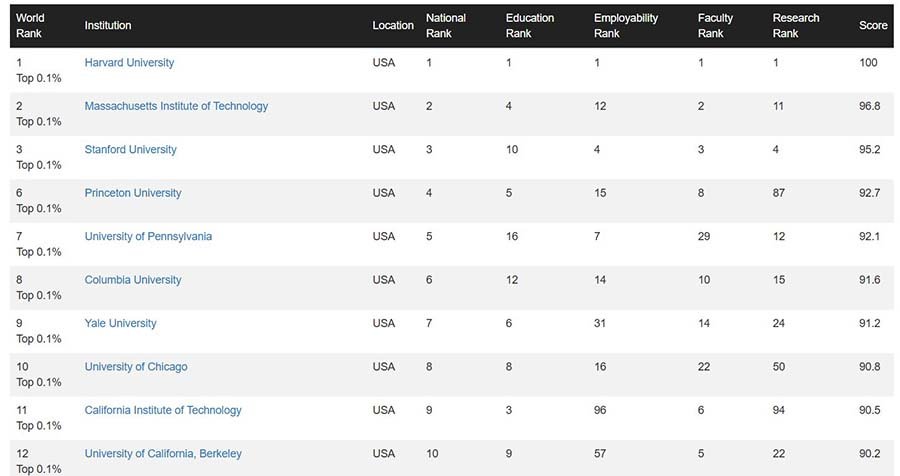
The United Kingdom is represented by 89 universities in 2025. Cambridge is recognized as the world’s best public university for the twelfth consecutive year, holding 4th place globally, while Oxford remains firmly in the top ten (5th place). University College London ranks 20th, and Imperial College London follows at 28th. King’s College London closes the top 50 in 42nd place. Other notable entries include the University of Edinburgh (51st), Manchester (53rd), Birmingham (93rd), Bristol (101st), and Leeds (109th). The strength of British universities lies largely in research performance: Cambridge ranks among the top 15 in science and 4th globally for faculty, while Oxford shows outstanding research results (6th place) despite lower employment outcomes.
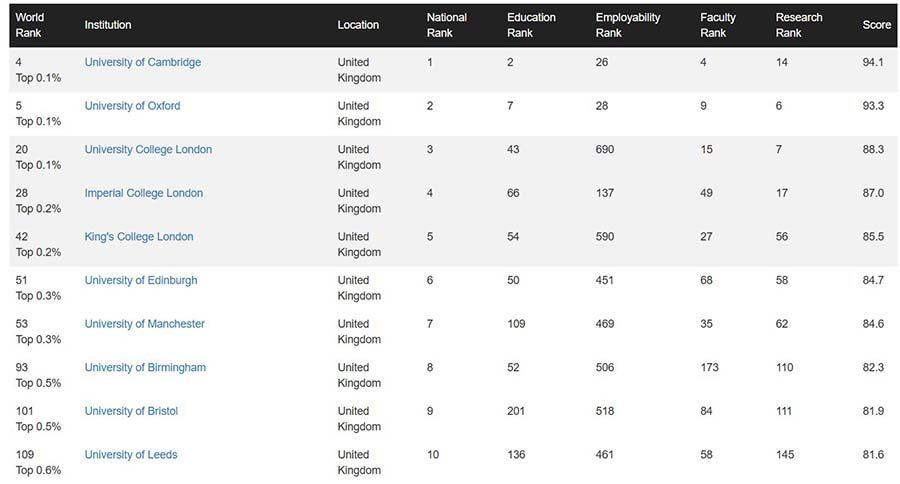
Japan follows with 107 institutions. The University of Tokyo (13th) remains the national flagship. Other leading centers include Kyoto (24), Osaka (107), Keio (108), and Nagoya (123). Tokyo Institute of Science (145) and Tohoku University (158) also appear among Japan’s top performers.
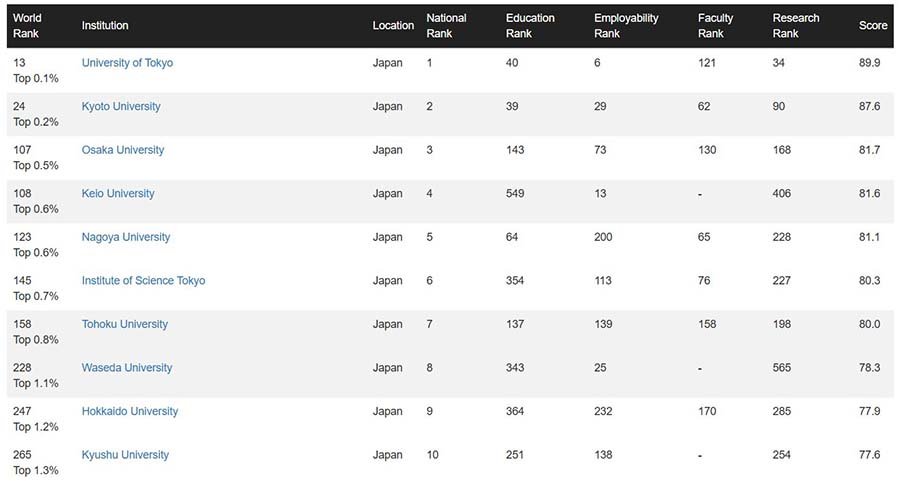
France continues to be led by PSL University (19th), which has consolidated its position within the global top 20. Next come Paris City University (29th), Paris-Saclay University (34th), and Institut Polytechnique de Paris (35th). Sorbonne University ranks 43rd, maintaining its reputation as one of France’s most recognizable educational brands. Other strong performers include INSEAD (122nd), the University of Strasbourg (149th), Grenoble (164th), Aix-Marseille (169th), and Montpellier (177th). Overall, 71 French universities are featured.
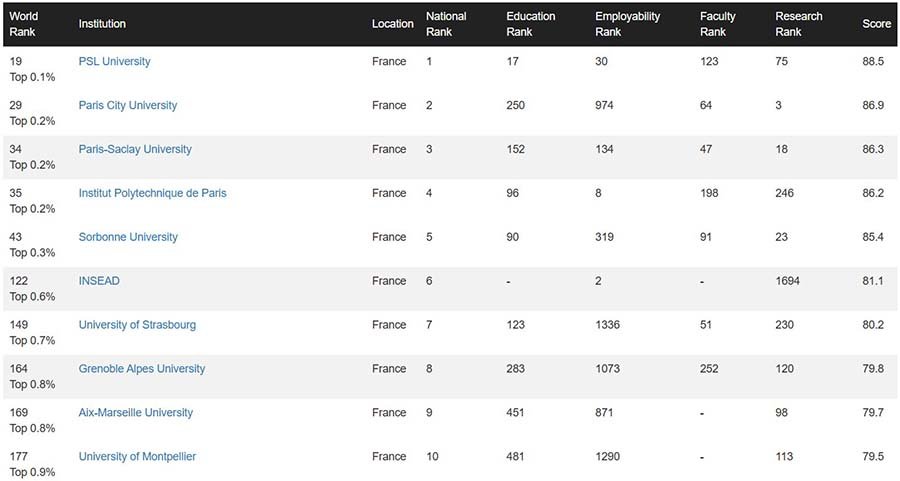
Canada has 38 universities on the list, many of which lost ground compared to last year. The country’s leader remains the University of Toronto (23rd), followed by McGill University (27th) and the University of British Columbia (48th). The University of Alberta ranks 81st. Other strong players include the University of Montreal (124th), Western University (185th), and McMaster (186th). Despite having three institutions in the top 50, experts at Academica noted growing competition from the U.S. and China. The main reason for declining positions lies in underfunded research, and without greater investment, Canada risks further losses.
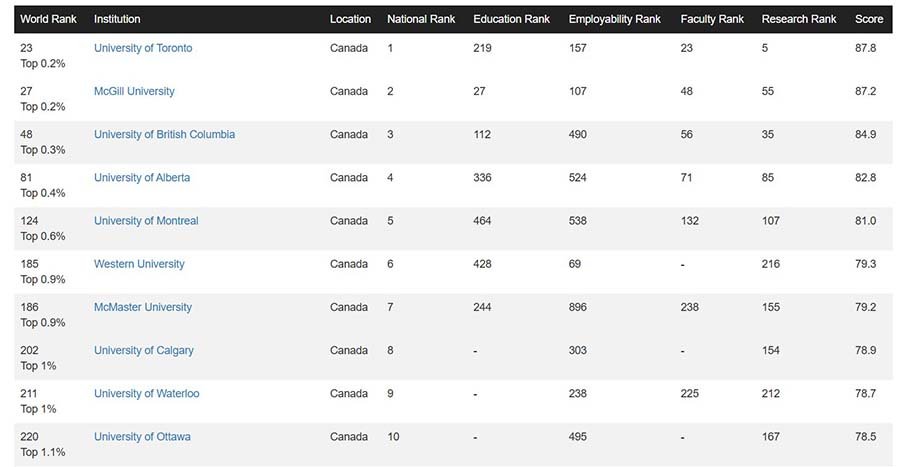
South Korea counts around 60 institutions. Seoul National University leads (31st), followed by Yonsei University (143rd), Korea University (155th), and Sungkyunkwan University (195th).
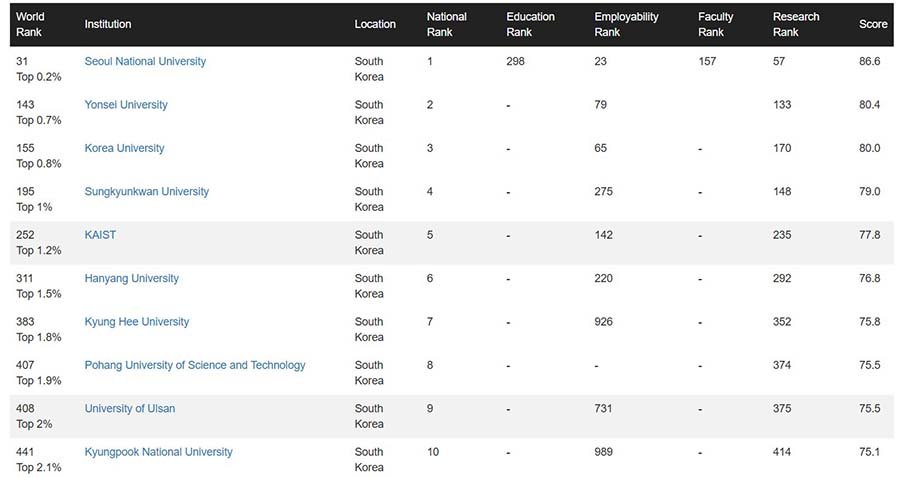
Switzerland contributes 13 institutions. ETH Zurich ranks 32nd and remains one of Europe’s top technical universities. The University of Zurich follows at 62nd, Basel at 85th, and EPFL Lausanne at 106th, confirming its role as a leading engineering hub. The universities of Geneva (115), Bern (139), and Lausanne (197) also appear in the top 200.
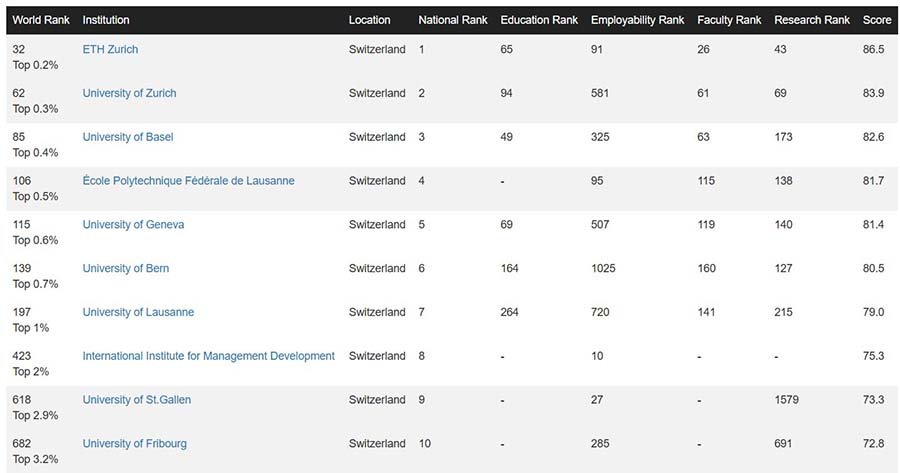
China is represented by the largest number—346 universities—surpassing the U.S. for the first time in volume. However, the country still lacks representatives in the global top 20. Its best performer is Tsinghua University (37th), followed by Peking University (44th) and the University of Chinese Academy of Sciences (46th).
Others in the top 100 include Shanghai Jiao Tong University (61), Zhejiang (68), and Fudan (73). Additional leaders are Sun Yat-sen (95), the University of Science and Technology of China (96), and Huazhong University of Science and Technology (98). All C9 League members improved their positions compared to last year, reflecting China’s focus on strengthening research centers and boosting academic citation.
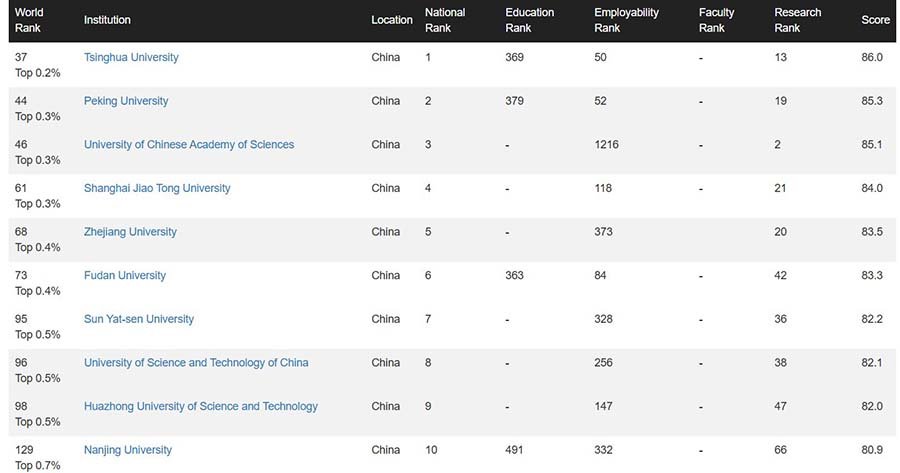
CWUR President Nadim Mahassen stated that China’s rise is driven by large-scale research investments and the growth of major state universities. Concentrating resources on priority areas, he said, enables the country to close the quality gap with the U.S. and the U.K.
The top 50 closes with Ludwig Maximilian University of Munich, while Germany contributes 53 universities overall, including Humboldt (58th), Free University of Berlin (59th), Heidelberg (72nd), and the Technical University of Munich (77th).
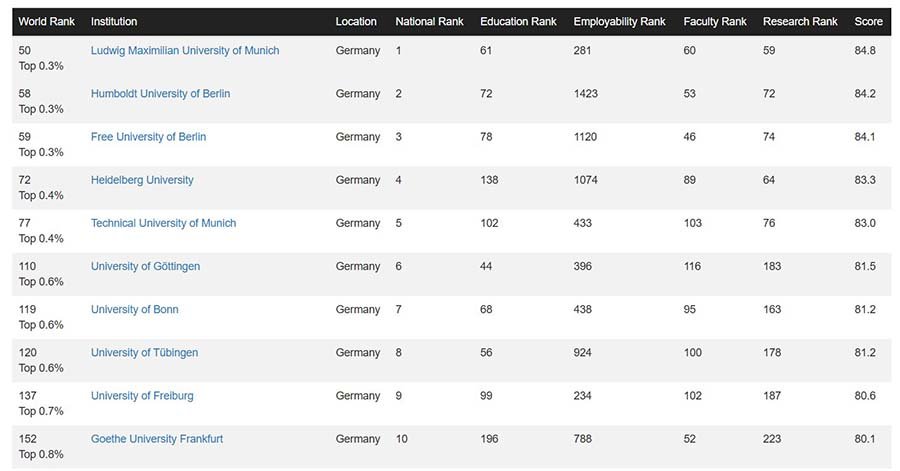
The University of New South Wales, Australia, ranks 52nd. The Hebrew University of Jerusalem is 65th, and Israel’s Weizmann Institute of Science—one of the world’s leading research hubs—holds 70th place. Utrecht University in the Netherlands ranks 78th, the National University of Singapore 80th, and the University of Oslo 87th. Aarhus University in Denmark is 100th, while KU Leuven in Belgium stands at 105th. Taiwan appears at 113th, São Paulo (Brazil) at 118th, Sapienza University of Rome (Italy) at 125th, and the University of Barcelona at 126th.
Analysts point out that Spain has 53 universities in the ranking, but 81% have fallen compared to last year. El País reported chronic underfunding and weak research productivity. Mahassen warned that without substantial investment, Spain risks falling further behind global standards.
Among Finnish institutions, the University of Helsinki leads (127th), placing within the top 0.6% worldwide. Russia has 43 universities on the list, with Moscow State University at 245th—significantly below the leading European and Asian benchmarks but still maintaining its national flagship status.
The CWUR 2025 ranking highlights a shift in the global balance: China now leads by number of universities, while the U.S. and the U.K. retain qualitative dominance. Europe shows mixed outcomes—from strong positions in France, Germany, and Switzerland to declines in Spain. Experts emphasize that long-term stability depends not only on tradition but also on investment in research and educational infrastructure. The tension between mass expansion and quality preservation will define the future landscape of global higher education.
Read more:
Most Affordable Cities for Studying Abroad: 2025 Ranking
World Reputation Rankings 2025: Top Universities and Expanding Global Influence
The Best and Worst European Countries for Young Adults
Best Cities for Gen Z: Time Out Ranking
Switzerland Ranks First Again in Best Countries Index








